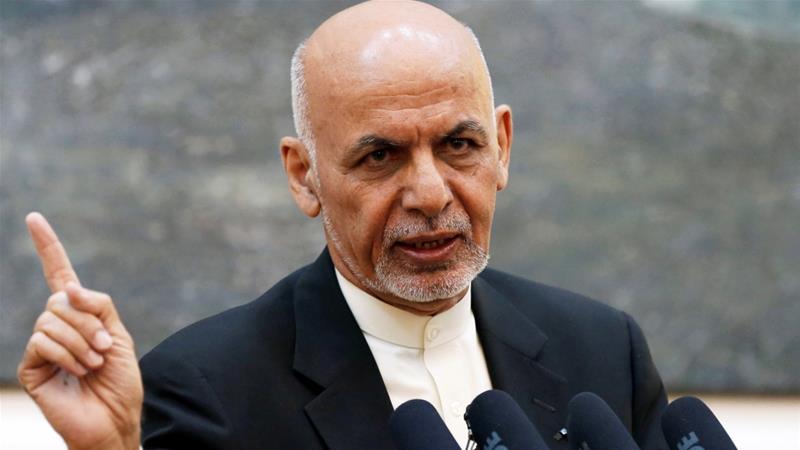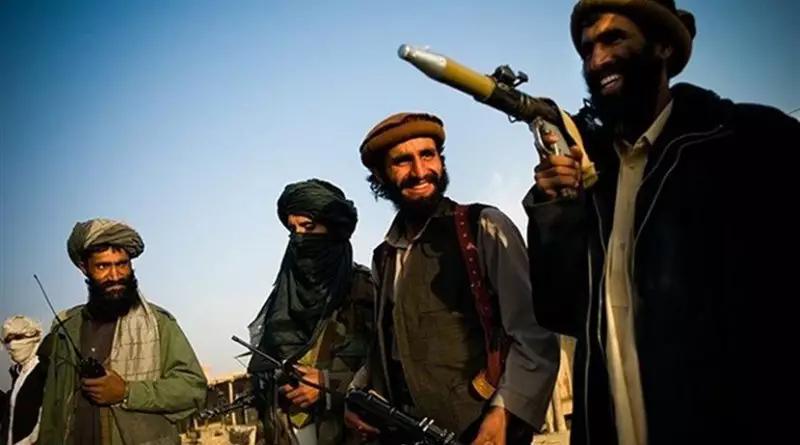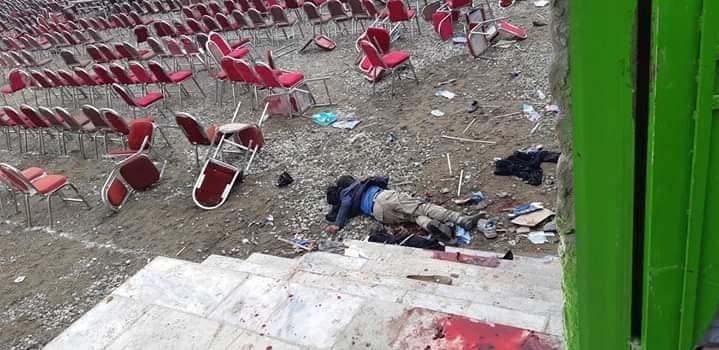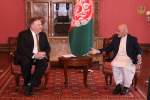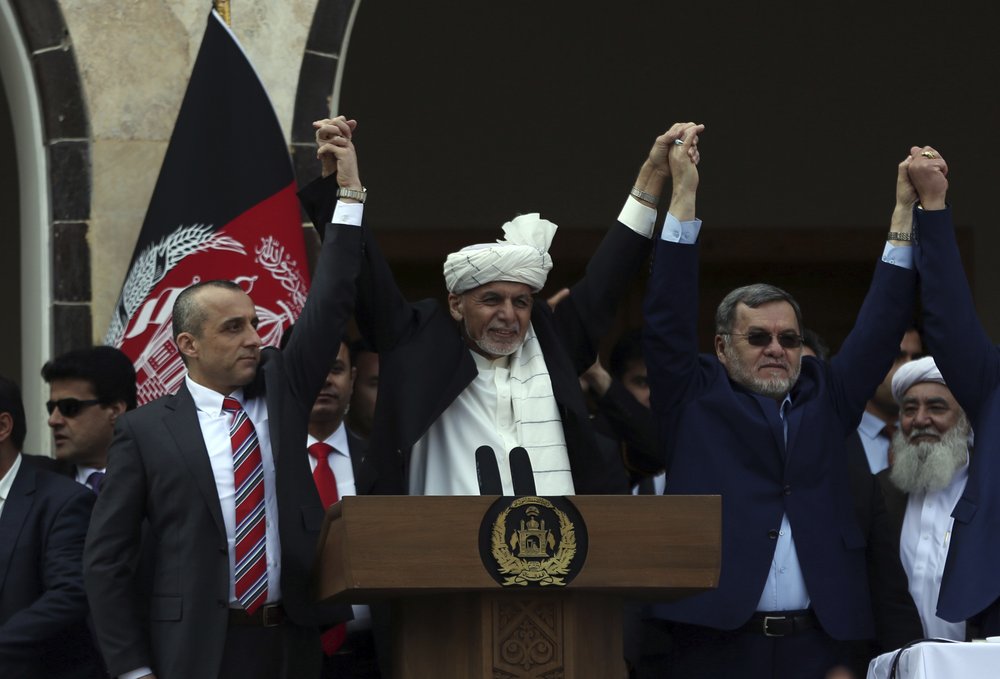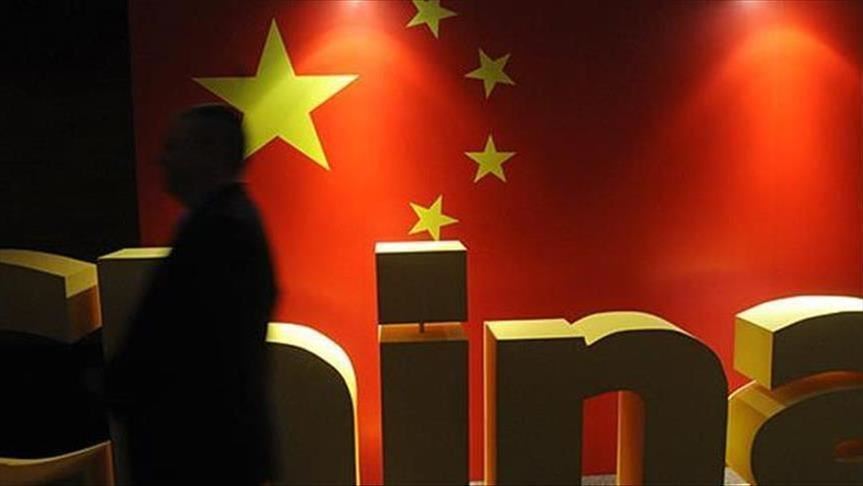The NUG is struggling with containing the Taliban and addressing internal divisions.
Publish dateTuesday 25 September 2018 - 17:42
Story Code : 171506
AVA- During this year's holy day of Ashoura, residents of Hazara-populated neighbourhoods of Kabul had to take security into their own hands. After a series of deadly bombings shook Afghanistan over the past month, the community set up its own checkpoints to secure the religious procession on that day.
This was yet another reminder that the Afghan National Unity Government (NUG) is failing to provide proper security to many of its citizens. Over the past few years, the security situation has severely deteriorated in Afghanistan. Currently, the Taliban threaten 70 percent of the country, while fighting has killed and maimed some 40,000 civilians.
In 2014, the NUG was formed to unite all power blocs in Afghanistan, stabilize the military situation in the country and start a peace process with the Taliban. President Ashraf Ghani and Chief Executive Abdullah Abdullah were sworn in with the mandate to introduce major reforms and bring peace to Afghanistan. More than four years have passed and they are yet to deliver on their promises.
The Taliban predicament
Over the past four years, government forces have not only failed in containing the Taliban but have even lost ground to it. In 2015, the armed group overran Kunduz province and its capital. Subsequently, the Afghan army managed to regain control over Kunduz city, but the province remains largely insecure.
In May this year, the Taliban also advanced on Farah province and temporarily captured its capital. Then in August, the armed group launched an attack on Ghazni province, where it also overran the provincial capital. The same month, the Taliban also surrounded a military base in Faryab province forcing a detachment of dozens of soldiers to surrender.
During the Taliban's summer offensive, scores of civilians and security forces were killed and injured, private properties were damaged, and government institutions were burned down.
The scale and intensity of these attacks have not been seen since 2001. The Taliban never had the capability to launch such massive offences and never succeeded in taking over any major cities.
Enjoying such unprecedented military success, the Taliban is shunning Ghani's persistent calls to enter into peace negotiations with the government. Although they accepted a short-term truce during the Eid holidays, they rejected a second ceasefire proposal from the government and refused to sit down for peace talks.
The Taliban sees the Afghan president as a "US puppet" and has made it clear that it wants to engage in direct talks with the US. Reversing its previous stance, the Trump administration announced in July that it would be seeking direct talks with the armed group. In August, after Taliban political leader Sher Mohammad Abbas Stanikzai attended talks in Uzbekistan, the group also accepted to attend a peace conference organized by Russia, which the Afghan government has sought to postpone.
Although Ghani was hailed as a political leader who could use his standing among the Pashtuns to jumpstart the peace process, he seems to have failed to use his tribal clout.
His intra-Pashtun clan politics seems to have made reaching out to the Taliban more difficult. The Taliban leadership are Durrani Pashtun from Kandahar who take pride in being the descendants of "conventional" Afghan rulers like Ahmad Shah Durrani. Ghani is a Ghilzai Pashtun and this seems to have coloured the "extreme Pashtun nationalism" he has been said to display in his governmental appointments.
Although the Afghan president has been accused of favouring Pashtuns in general over other ethnic groups, he has specifically surrounded himself with mostly "eastern Pashtuns".
Divisive politics
Apart from the deteriorating security situation, the NUG has also grappled with a series of official resignations and international tensions. In late August, National Security Adviser Hanif Atmar resigned, followed by Defence Minister Tariq Shah Bahrami, Interior Minister Wais Barmak and National Directorate of Security chief, Masoom Stanekzai.
It was reported that Ghani had asked the four to step down, but he subsequently refused to accept the resignations of the latter three officials.
As for Atmar, it is already rumored that he is thinking of challenging Ghani in the upcoming presidential elections in April 2019.
But beyond the possible challenge from the former adviser, Ghani also has to worry about a much bigger opponent. His divisive policies have alienated a number of Afghan political forces which came together under the umbrella of the Grand National Coalition of Afghanistan (GNCA) announced in July this year.
The coalition attracted almost all opposition forces, including former President Hamid Karzai, Tajik leader and former Balakh province governor Atta Muhammad Nur (whom Ghani dismissed last year) and Uzbek strongman and former Vice President Abdul Rashid Dostum (who went into exile last year but returned in July).
The GNCA is currently eyeing the upcoming parliamentary and presidential elections and has emerged as the main challenger to Ghani's power. It displays the kind of cross-ethnic political unity that the Afghan president should have strived to achieve under the NUG.
Ghani's last hope
Amid the increasingly difficult political and security situation in Afghanistan, Ghani has only two trump cards to play. One is his long-term ally Zalmay Khalilzad who was appointed adviser to US Secretary of State Mike Pompeo on Afghanistan. It is expected that he will be lobbying on his behalf to get US backing for another term.
The second one is Imran Khan, who just won the elections in Pakistan. Khan is ethnically Pashtun and can potentially help the Afghan government with the peace talks.
Ghani could approach the new Pakistani administration to seek help with establishing another channel of communication with the Taliban. He could also push for Pakistan to be included in talks with other regional powers, including India, Iran and Russia, on the Taliban issue.
But the Afghan president has just a few weeks till the parliamentary elections and less than a year to the presidential vote and it is unlikely that he can do much to significantly improve the security situation in the country and his own chances of political survival.
This was yet another reminder that the Afghan National Unity Government (NUG) is failing to provide proper security to many of its citizens. Over the past few years, the security situation has severely deteriorated in Afghanistan. Currently, the Taliban threaten 70 percent of the country, while fighting has killed and maimed some 40,000 civilians.
In 2014, the NUG was formed to unite all power blocs in Afghanistan, stabilize the military situation in the country and start a peace process with the Taliban. President Ashraf Ghani and Chief Executive Abdullah Abdullah were sworn in with the mandate to introduce major reforms and bring peace to Afghanistan. More than four years have passed and they are yet to deliver on their promises.
The Taliban predicament
Over the past four years, government forces have not only failed in containing the Taliban but have even lost ground to it. In 2015, the armed group overran Kunduz province and its capital. Subsequently, the Afghan army managed to regain control over Kunduz city, but the province remains largely insecure.
In May this year, the Taliban also advanced on Farah province and temporarily captured its capital. Then in August, the armed group launched an attack on Ghazni province, where it also overran the provincial capital. The same month, the Taliban also surrounded a military base in Faryab province forcing a detachment of dozens of soldiers to surrender.
During the Taliban's summer offensive, scores of civilians and security forces were killed and injured, private properties were damaged, and government institutions were burned down.
The scale and intensity of these attacks have not been seen since 2001. The Taliban never had the capability to launch such massive offences and never succeeded in taking over any major cities.
Enjoying such unprecedented military success, the Taliban is shunning Ghani's persistent calls to enter into peace negotiations with the government. Although they accepted a short-term truce during the Eid holidays, they rejected a second ceasefire proposal from the government and refused to sit down for peace talks.
The Taliban sees the Afghan president as a "US puppet" and has made it clear that it wants to engage in direct talks with the US. Reversing its previous stance, the Trump administration announced in July that it would be seeking direct talks with the armed group. In August, after Taliban political leader Sher Mohammad Abbas Stanikzai attended talks in Uzbekistan, the group also accepted to attend a peace conference organized by Russia, which the Afghan government has sought to postpone.
Although Ghani was hailed as a political leader who could use his standing among the Pashtuns to jumpstart the peace process, he seems to have failed to use his tribal clout.
His intra-Pashtun clan politics seems to have made reaching out to the Taliban more difficult. The Taliban leadership are Durrani Pashtun from Kandahar who take pride in being the descendants of "conventional" Afghan rulers like Ahmad Shah Durrani. Ghani is a Ghilzai Pashtun and this seems to have coloured the "extreme Pashtun nationalism" he has been said to display in his governmental appointments.
Although the Afghan president has been accused of favouring Pashtuns in general over other ethnic groups, he has specifically surrounded himself with mostly "eastern Pashtuns".
Divisive politics
Apart from the deteriorating security situation, the NUG has also grappled with a series of official resignations and international tensions. In late August, National Security Adviser Hanif Atmar resigned, followed by Defence Minister Tariq Shah Bahrami, Interior Minister Wais Barmak and National Directorate of Security chief, Masoom Stanekzai.
It was reported that Ghani had asked the four to step down, but he subsequently refused to accept the resignations of the latter three officials.
As for Atmar, it is already rumored that he is thinking of challenging Ghani in the upcoming presidential elections in April 2019.
But beyond the possible challenge from the former adviser, Ghani also has to worry about a much bigger opponent. His divisive policies have alienated a number of Afghan political forces which came together under the umbrella of the Grand National Coalition of Afghanistan (GNCA) announced in July this year.
The coalition attracted almost all opposition forces, including former President Hamid Karzai, Tajik leader and former Balakh province governor Atta Muhammad Nur (whom Ghani dismissed last year) and Uzbek strongman and former Vice President Abdul Rashid Dostum (who went into exile last year but returned in July).
The GNCA is currently eyeing the upcoming parliamentary and presidential elections and has emerged as the main challenger to Ghani's power. It displays the kind of cross-ethnic political unity that the Afghan president should have strived to achieve under the NUG.
Ghani's last hope
Amid the increasingly difficult political and security situation in Afghanistan, Ghani has only two trump cards to play. One is his long-term ally Zalmay Khalilzad who was appointed adviser to US Secretary of State Mike Pompeo on Afghanistan. It is expected that he will be lobbying on his behalf to get US backing for another term.
The second one is Imran Khan, who just won the elections in Pakistan. Khan is ethnically Pashtun and can potentially help the Afghan government with the peace talks.
Ghani could approach the new Pakistani administration to seek help with establishing another channel of communication with the Taliban. He could also push for Pakistan to be included in talks with other regional powers, including India, Iran and Russia, on the Taliban issue.
But the Afghan president has just a few weeks till the parliamentary elections and less than a year to the presidential vote and it is unlikely that he can do much to significantly improve the security situation in the country and his own chances of political survival.
Source : خبرگزاری Afghn Voice Agency(AVA)
avapress.net/vdcjyvevmuqeaiz.92fu.html
Tags
Top hits
